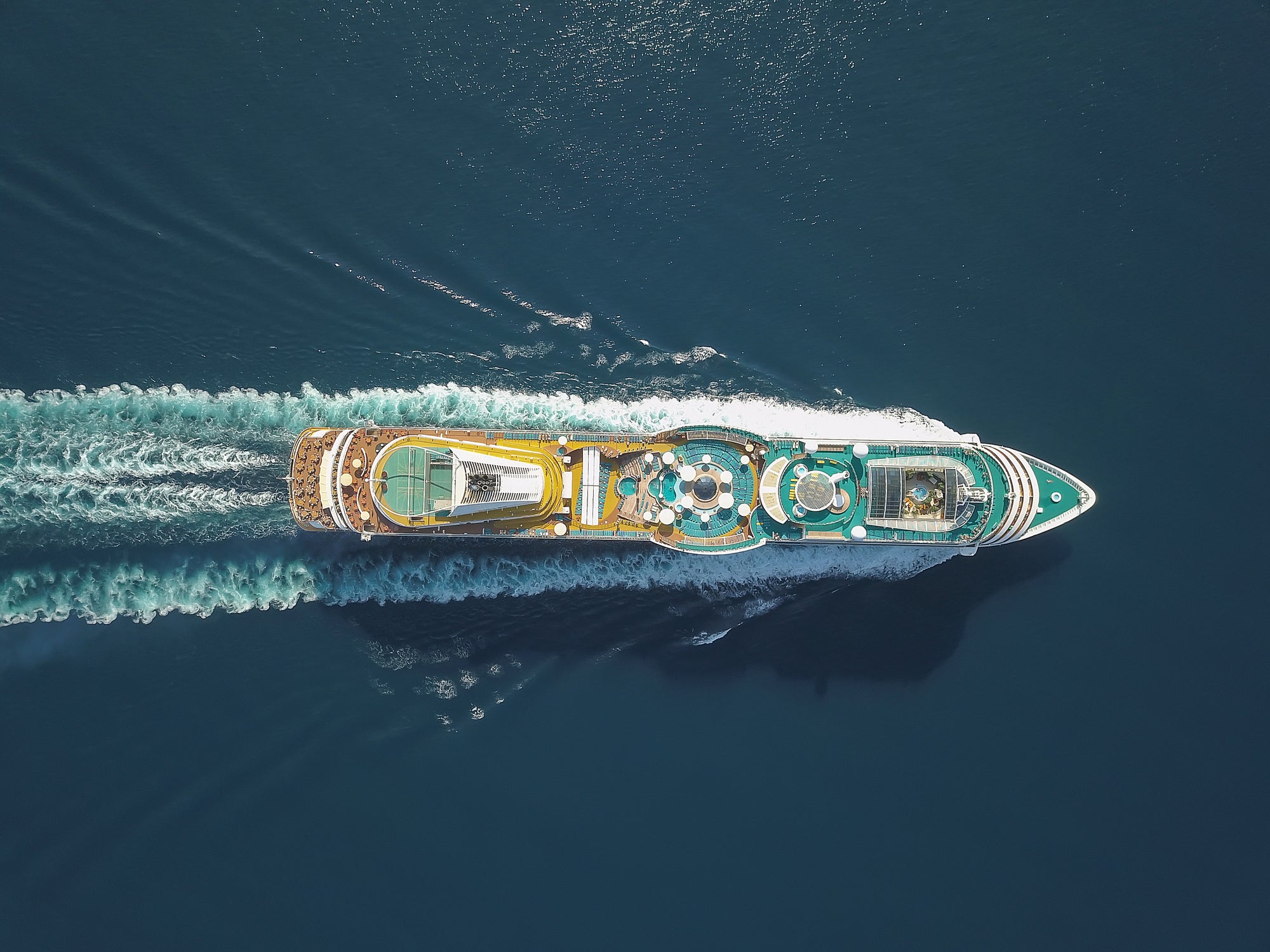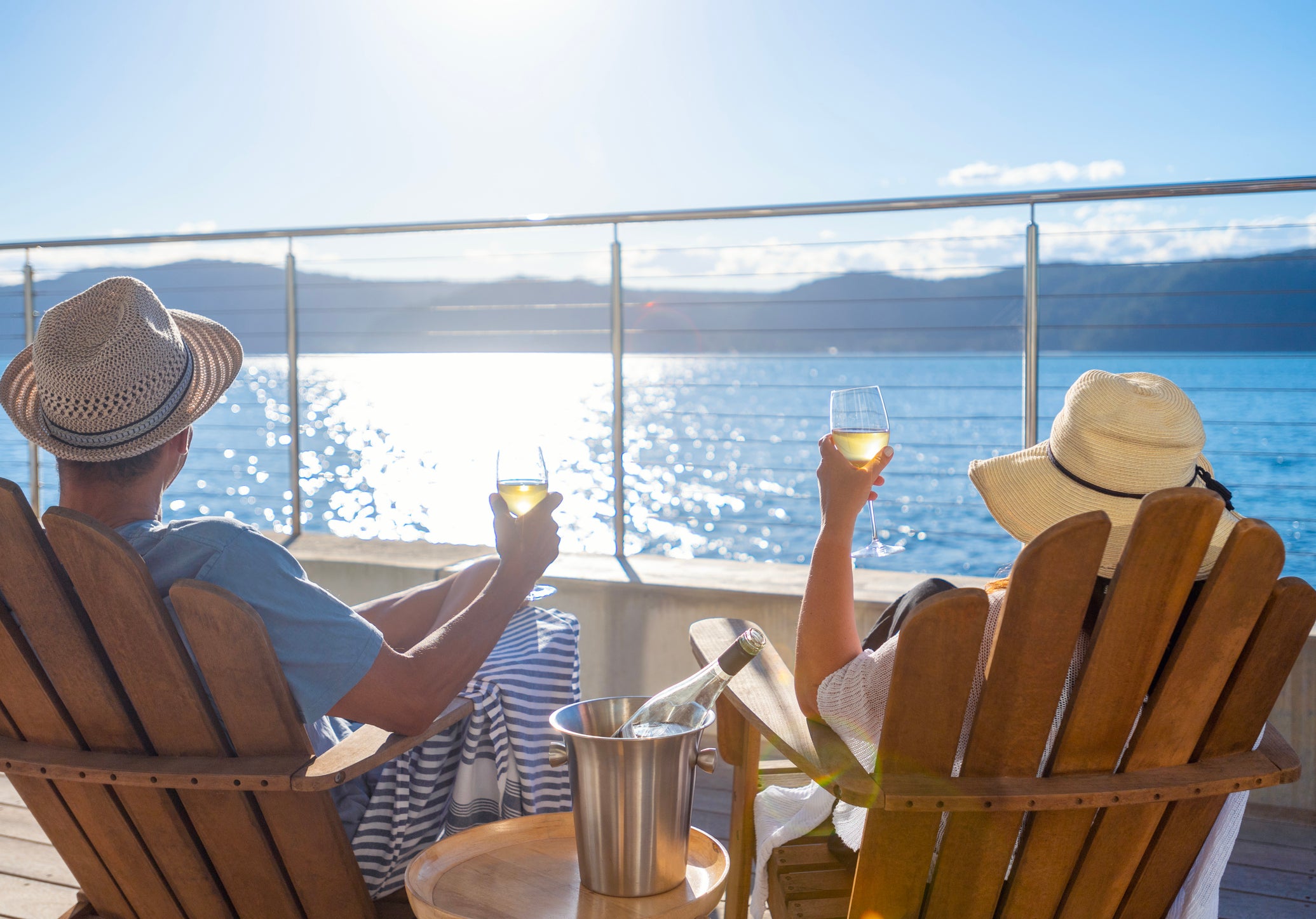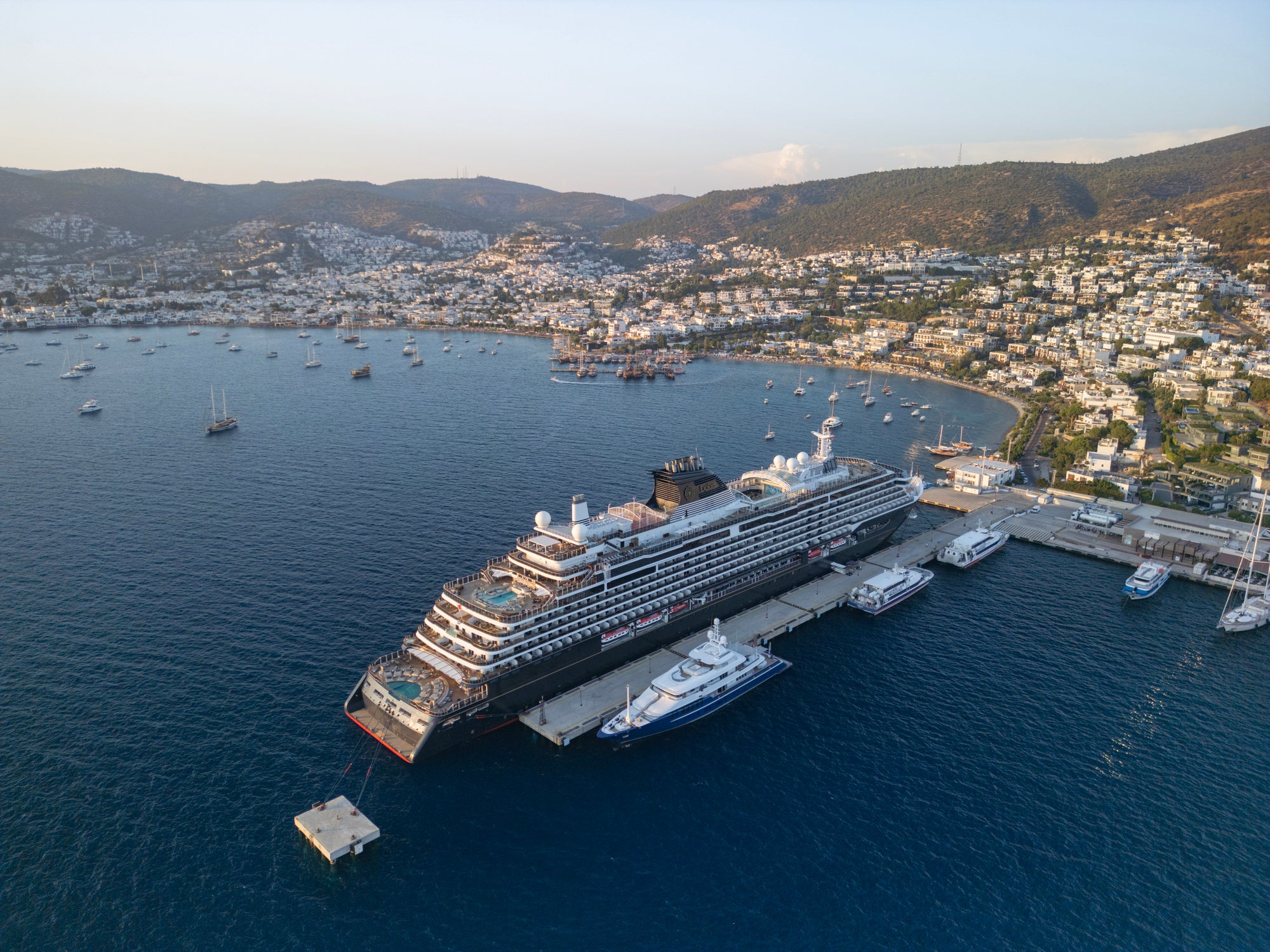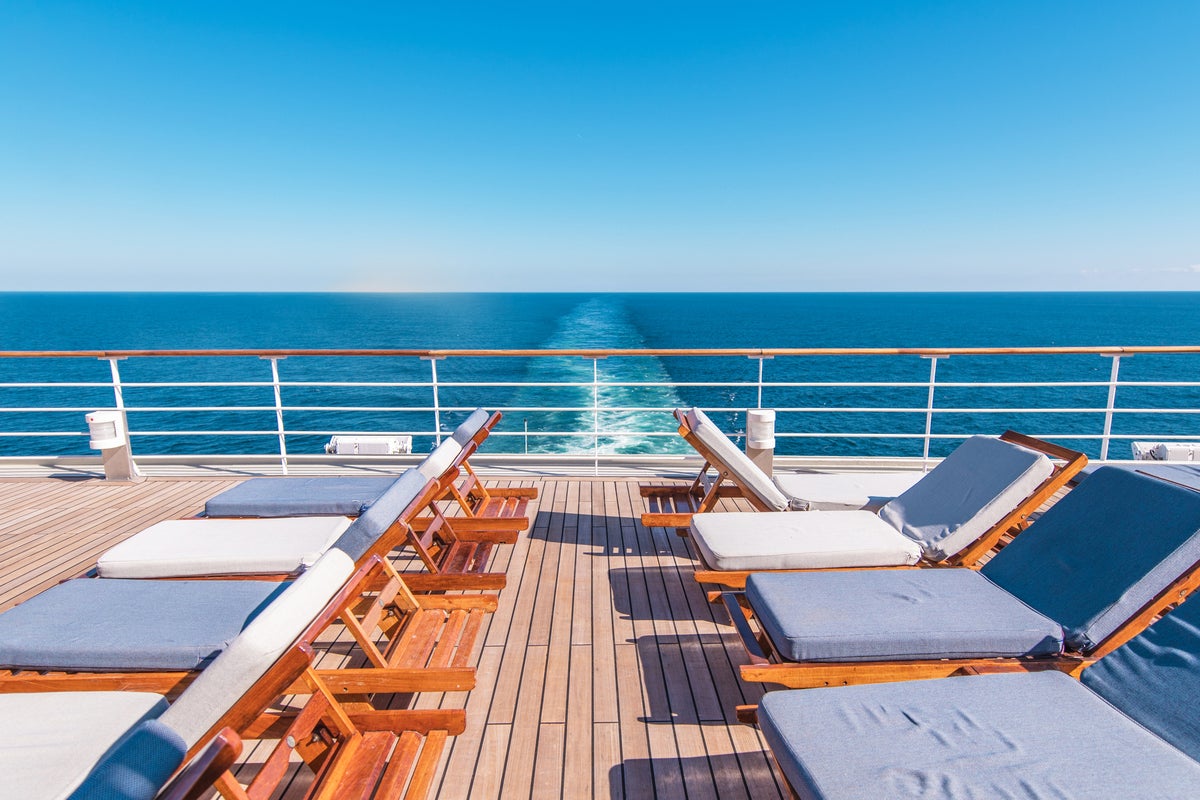Does the idea of a cruise not float your boat because of all the tales of passenger woe floating around the blogosphere?
We spoke to several cruise experts and asked them to weigh in on some of the more prevalent myths about cruises that may be putting you off.
Perhaps you thought seasickness was guaranteed, that ships would be claustrophobic or that in terms of hygiene, they’re tantamount to floating Petri dishes.
Here, our cruise gurus, including one who’s been on more than 90 sailings, dispel all these notions and more.
Read on to hear why a cruise vacation is far more likely to be pleasantly plain sailing than a tsunami of traumatic experiences.

Myth: There’s a danger of accidentally falling overboard
Reality: “Nobody accidentally falls overboard,” says travel journalist and cruise expert David Yeskel, aka The Cruise Guru.
“That’s because it’s too difficult due to the height of railings. The rare cases of overboard guests all revolve around suicide or drunks taking risks on wet railings.”
Myth: Cruise ships are floating Petri dishes and norovirus outbreaks are rampant
Reality: “We hear about norovirus on cruise ships because they’re required to report norovirus cases that exceed a threshold of three percent of passengers and crew, which is actually rare,” says David Yeskel. “Land-based institutional facilities — schools, hospitals, nursing homes — where norovirus occurs much more often aren’t subject to those same reporting requirements.”
Donald Bucolo, from EatSleepCruise.com, who’s been on over 90 cruises, echoed these thoughts.
He told The Independent: “This myth drives me crazy because cruise ships have some of the most rigorous health protocols in the travel industry.
“The occasional norovirus outbreak gets massive media coverage, but these incidents are relatively rare and affect a small percentage of passengers.
“I’ve been on 90-plus cruises and have never experienced a significant illness outbreak. The hand sanitizer stations, enhanced cleaning protocols, and health monitoring make ships incredibly safe environments.”

Myth: You’re going to get seasick
Reality: “Seasickness on large cruise ships is actually rare,” says David, “because they utilize stabilizers to ensure a smooth ride. Seasickness can occur, however, during rough weather, which is when motion-sickness drugs are provided to guests to ward off seasickness.”
Myth: You’ll feel trapped on a cruise ship — they’re claustrophobic
Reality: “People imagine being stuck on a ‘boat’ with nowhere to go,” says EatSleepCruise.com’s Donald Bucolo, “but cruise ships offer incredible freedom and variety.
“You can find quiet spaces to read, bustling social areas to meet people, outdoor decks to enjoy ocean views, or cozy indoor lounges.
“The ship becomes your home base while you wake up in different destinations, so those days at sea are a great way to recharge between ports and make use of all the onboard activities and amenities.”
Myth: Cruises have poor food options
Reality: “Because cruises are often associated with large-scale travel, people mistakenly assume they’ll have to settle for low-quality food,” says Jeremy Clubb, the founder of Rainforest Cruises. “But on small luxury vessels, fine dining is part of the daily experience, with some ships featuring multi-course meals crafted by world-renowned chefs, who sometimes even host exclusive culinary events aboard.”
Myth: Cruises are boring
Reality: “Today’s ships have zip lines, rock-climbing walls, Broadway shows, various trivia contests, cruisers competitions, dance parties, and even go-kart tracks,” says Donald. “The challenge isn’t finding something to do — it’s choosing between dozens of options happening simultaneously.
“Even the ‘quiet’ cruise lines offer cooking classes, enrichment lectures, and cultural experiences that cater to travelers seeking more sophisticated activities and events.”

Myth: Cruises are only for retirees or party-seeking 20-somethings
Reality: “There is something for everyone,” Joel Wesseldyke, co-owner of JJ Travel Associates, tells The Independent. “Expedition cruises for those who want to experience nature up close, river cruises for travelers who want to be immersed in a destination and experience history from a different perspective, and ocean cruise itineraries that can include beaches and fun in the sun or focus on history and culture.
“There is a cruise appropriate for every age, interest, and desired experience.”
Myth: You don’t really experience the destinations — cruises aren’t ‘real travel’
Reality: “Non-cruisers love to say you only get a superficial, tourist-trap experience in each port,” says Donald, “but that’s completely outdated thinking.
“We’ve had some of our most authentic travel experiences through cruising, such as enjoying the sunset from a rooftop bar in Nice, France, or off-roading in Aruba with a local guide.
“The beauty is that cruising gives you a taste of multiple destinations, helping you decide where you want to return for a more extended stay.”
Colleen McDaniel, Editor-in-Chief of Cruise Critic, agrees.
She told The Independent: “While a cruise will never replace a week-long stay in one destination, there’s something to be said for the immersiveness and amount of ground you’re able to cover on a cruise.
“I’ve taken a hot air balloon ride over Egypt, have had farm-to-table meals prepared for me by local farmers in Europe, have traversed the most hard-to-reach-by-land areas of Alaska — all by cruise. It’s true: You’re not in one specific port for an extended period of time, but that’s because you’re able to explore wide regions all in one trip.”
Sean Atton, Global Cruise Manager at custom tour operator Audley Travel, adds: “There are amazing cruises available for clients who want to focus their maritime exploration on just one or two countries. We sell an itinerary that features a 16-day cruise that calls at nine ports in New Zealand, across both the North and South Islands, with clients visiting diverse places from the Bay of Islands in the north of the North Island and the fjords of the South Island, to city sights of Auckland, Christchurch and Dunedin.
“The clients see highlights of both islands, with the journey between places a key part of the experience of their trip.”
Myth: Last-minute cruises are cheaper
Reality: “Whilst last-minute deals do exist, sometimes they don’t work out cheaper overall,” says Andrew Marsh from travel agency Polar Escapes.
“Last-minute flights and accommodation can often make a last-minute cruise more expensive. Usually, last-minute deals are for unsold cabins, sometimes the least appealing, with the best options sold out in advance.”



